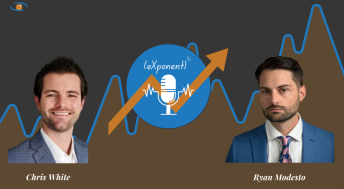There has to—just has to—be a lesson in this: Two weeks ago, business wires reported that former billionaire Sean Quinn had declared bankruptcy.
How someone who was worth $6 billion in 2008 could file for bankruptcy is somewhat mind-boggling. Sure, we have all heard of lotto winners or sports stars blowing through $5 million or $6 million on cars, houses and parties. But $6 billion? Come on.
Quinn, once Ireland’s richest man, was declared bankrupt after losing more than one billion Euros investing in Anglo Irish Bank Corp. The Irish Bank Resolution Corp. estimates Quinn owes the bank 2.9 billion Euros. A court receiver is due to take over the Quinn’s family interest in Quinn Group, a business that was built on materials, insurance and real estate.
The bank’s heavy exposure to property lending, with most of its loan book being to builders and property developers, meant that it was badly affected by the downturn in the Irish property market in 2008. In December 2008, the Irish government announced plans to inject €1.5bn of capital for a 75% stake in the bank, effectively nationalizing it. The shares fell 99%.
Quinn had attempted to support the bank through special derivative contracts. As the collapsed intensified, his losses multiplied.
In the bankruptcy proceedings, its was alleged Quinn had sold assets worth $193 million to one of his cousins, for $1,000.
Where do we even begin here, because there are so many lessons for investors from this sad tale?
First, as many, many people worldwide found out in 2008, real estate can actually decline in price. So many baby-boom investors saw house prices go up in value for 40 years that everyone more or less forgot that they could actually decline in value. A lot. Hopefully, the 2007-2008 real estate crash and anemic recovery is fresh enough in your mind that you won’t need a reminder of that any time soon.
Second, debt can make you rich, if you borrow at the right time. There is nothing like paying 3% interest on an asset that has gone up 100%. Real estate moguls use debt like crack. But debt, like drugs, can also kill you. While Mr. Quinn seems to have had at least some personal restraint using debt, the bank he invested in did not. Having 5% equity (or less) and the balance in debt does not leave much room for error if asset prices move the wrong way. The slightest decline in value wipes out your entire equity.
With the absolutely massive decline in real estate prices in Ireland during the crisis, Anglo Irish’s equity was more than wiped out, almost daily. That’s why it needed continual—and large—capital injections just to stay afloat prior to its eventual collapse.
Third, Mr. Quinn forgot one of the prime rules of true long-term investors—stay away from derivatives. Derivatives are a zero sum game: Someone always loses. Sure, you can make lots of money, but someone on the other side loses the same amount. Mr. Quinn dabbled in what’s known as ‘contracts for differences’. Don’t ask to me to explain what they are. Hopefully Mr. Quinn knew. Anyway, they did not work out, and as they declined in value Mr. Quinn was on the hook for more and more money.
Finally, desperate investors do desperate things. The Quinn Family says the allegations of asset transfers were “baseless and hardly deserving of comment”.
But there have been other allegations. Like a football team down 30 points with two minutes left in the game, investors in trouble might try some crazy last-minute plays.
Make your life easier: Don’t get to Mr. Quinn’s point. Stay away from leverage; stay away from derivatives; don’t go all-in on a sector; and stop throwing good money after bad investments.





Comments
Login to post a comment.